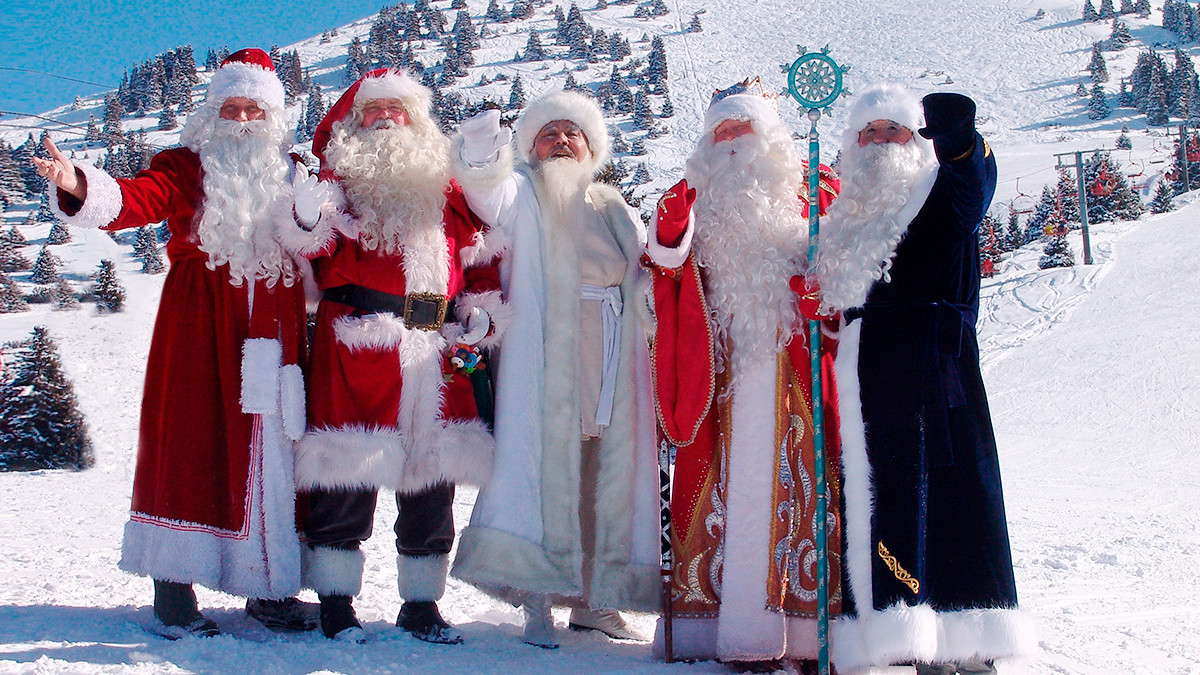
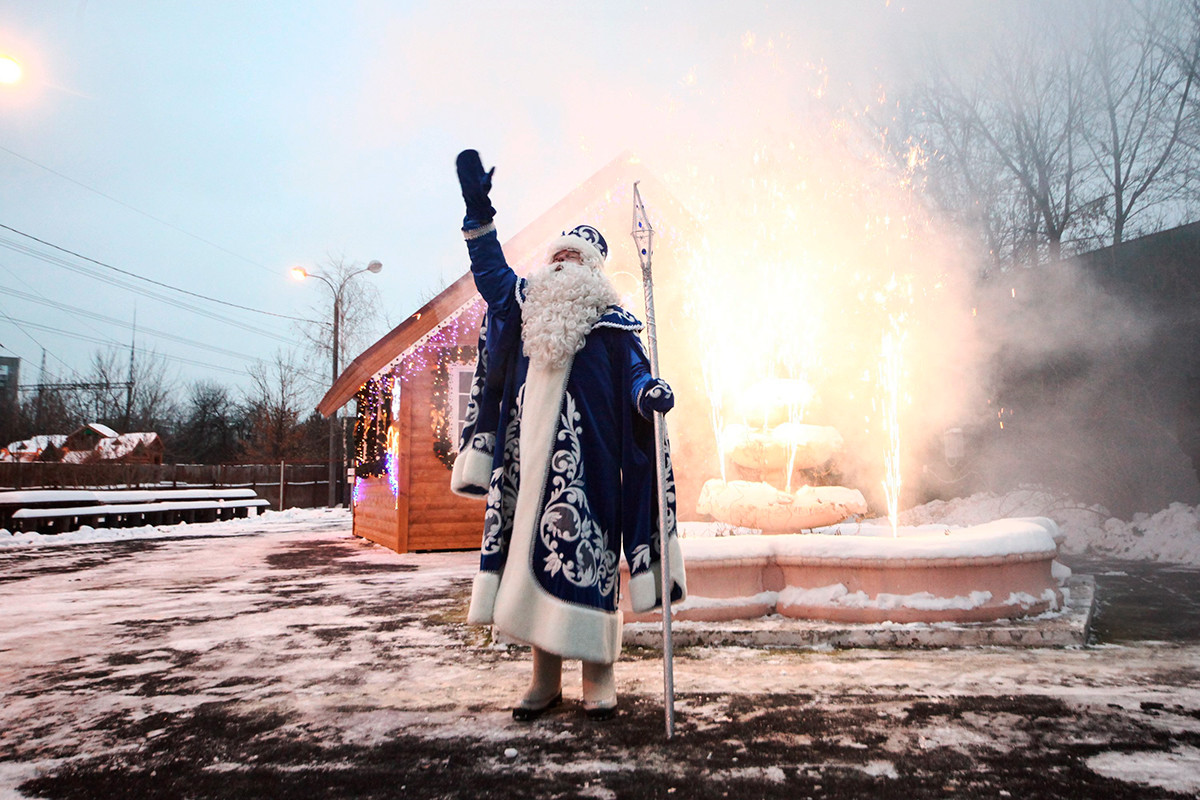
Grandfather Frost is easily recognizable by his long red or blue coat trimmed with white fur, matching hat, and huge white beard. In his
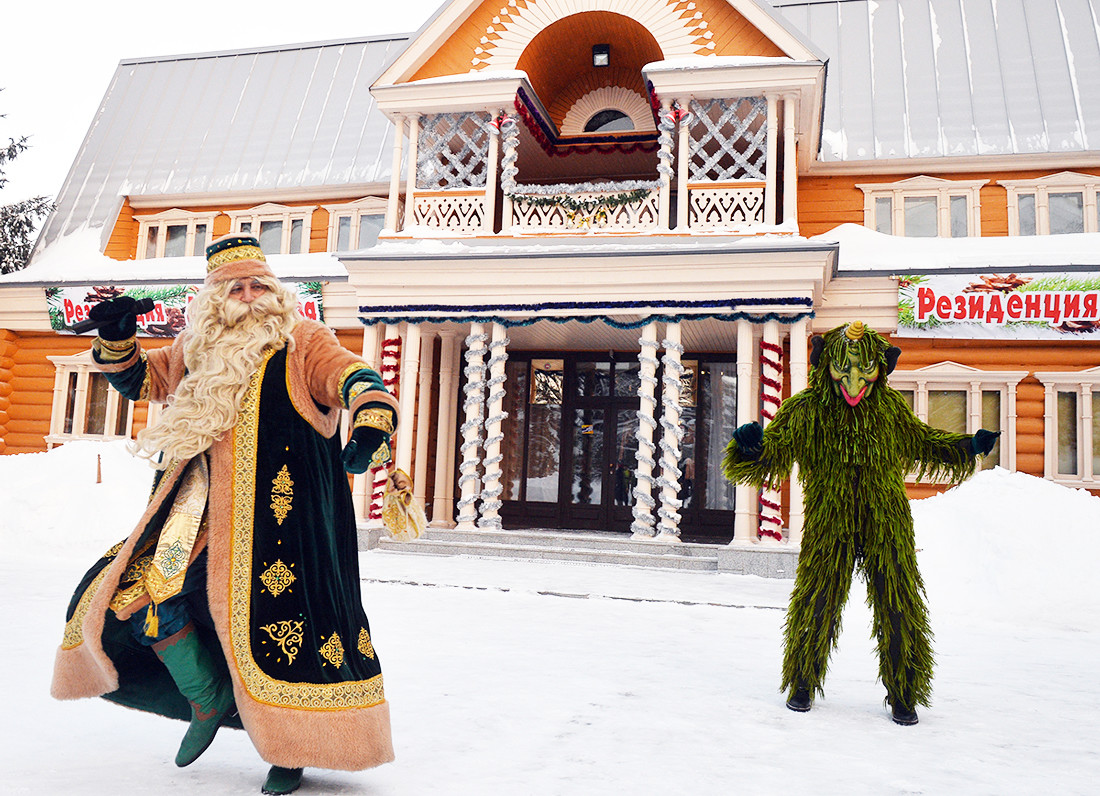
The village of Yana Kyrlay in the Muslim Republic of Tatarstan is home to Grandfather Frost’s brother Kysh Babai. The fur coat is replaced by a blue
Translated from the Karelian language, Talvi Ukko means “Winter Grandfather.” He lives near Petrozavodsk, the capital of the Republic of Karelia in northern Russian, along with his team of reindeer, husky, and malamute helpers. So people visit his residence not only to receive gifts, but to ride reindeer and dog sleds, and drink tea with Karelian pasties, known as kalitkas.
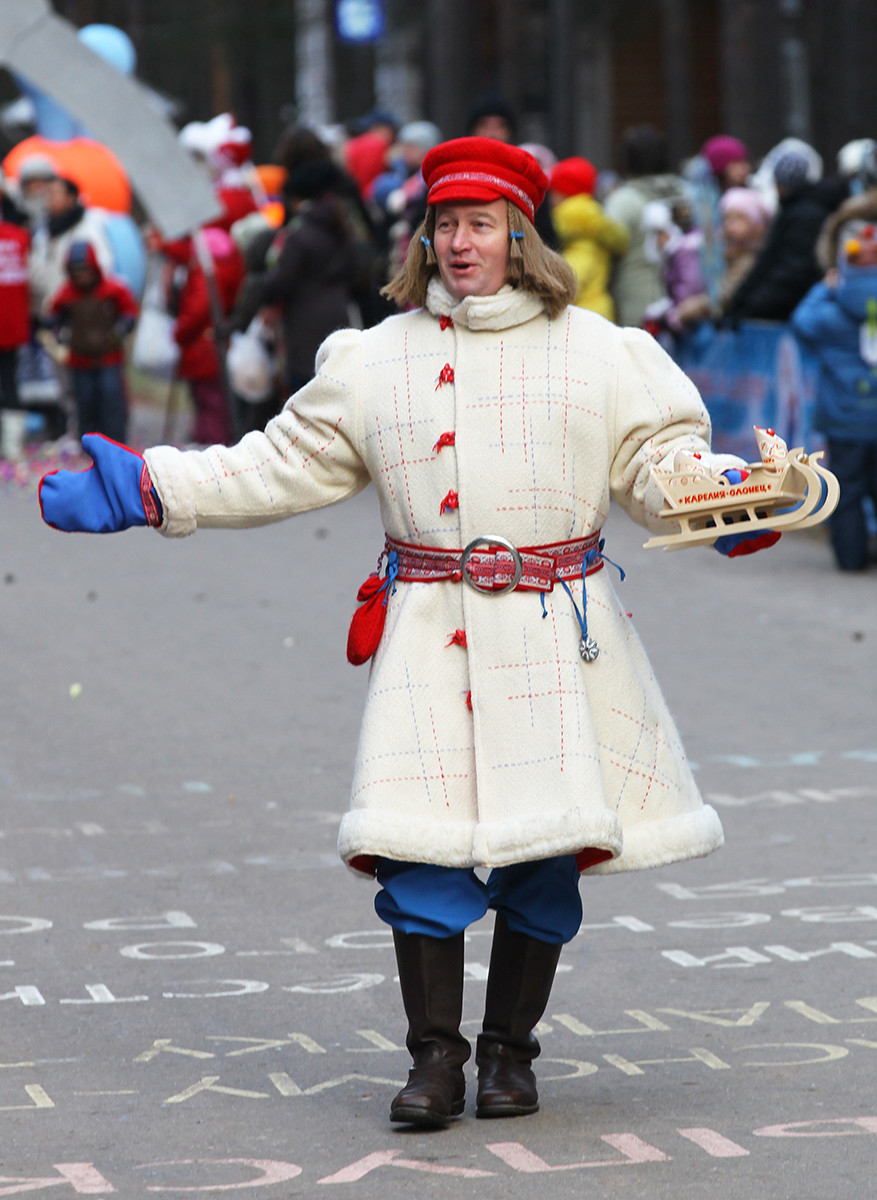
Still in Karelia, this time in the medieval town of Olonets further south, there lives another Father Frost called Pakkaine, whose appearance offers no clue as to his real identity. His name, appropriately, translates as “frosty weather.” According to legend, Pakkaine was a jolly fellow, who loved winter fun and travel. But he was also very fond of preening in front of the mirror. It is said that in every town where he stayed, his reflection carried on living there. Every year on December 1 all these reflections would make their way to Olonets to try to prove that they were the real Pakkaine. True or not (you decide), today folk festivals and Father Frost competitions are held at his fabled residence. Pakkaine is buddies with Talvi Ukko and Father
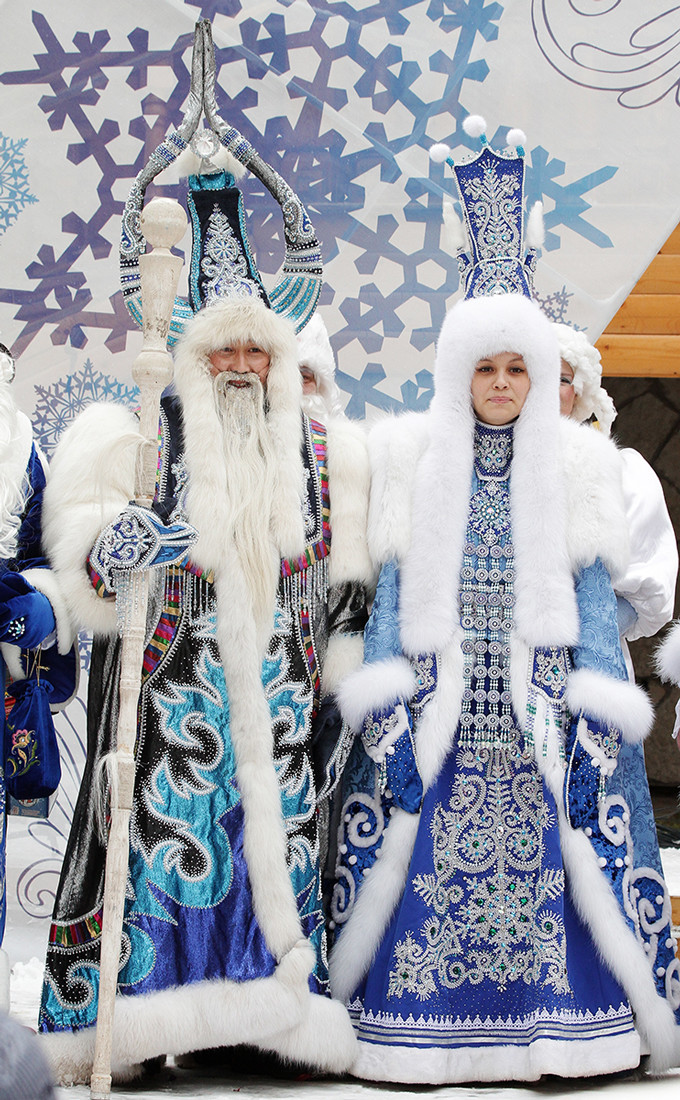
Further east, Yakutia has two Grandfather
The other half of the double act is the good Ehee Gyul, who takes children reindeer sledding and gives them gifts. He has a granddaughter, Kharchaan, but only the hardiest travelers can get to their residence in Oymyakon, one of the coldest inhabited locales on Earth, where the mercury drops to -70C.
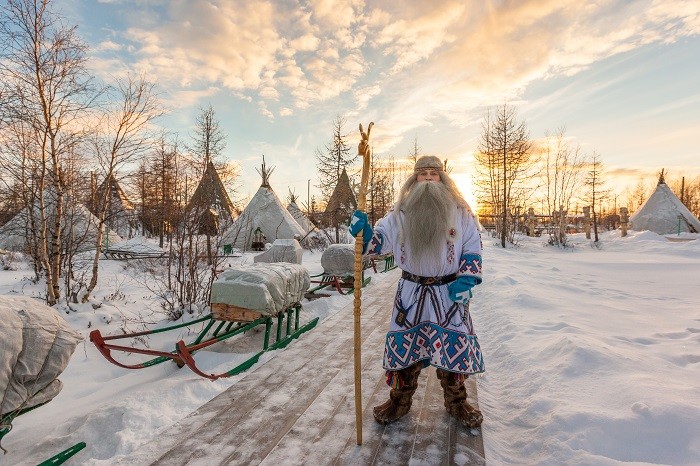
The giant Tol Babai has a crooked staff from his long years of wandering the globe. Legend has it that during his travels he learned to communicate with animals and plants, yet people were always slightly fearful of him. Only children wanted to be friends with the giant. Ever since, as a thank-you, he gives presents to his little friends and invites them to visit him. He is easy to recognize by his purple coat and birch-bark box for carrying gifts for his friends.
In times of yore, the peoples of the Chuvash Republic celebrated New Year during the holiday of Surkhuri (literally “sheep’s leg,” because after the festivities people used to catch sheep by the leg and tell fortunes for the coming year based on the color, black or white). The chief magic spirit of the Chuvash holiday is Khel Muchi, aided by his granddaughter Yur Pike. Their box of tricks includes a talking samovar, a chest of wishes, and a “lucky” clock. Meeting Khel Muchi on New Year’s Eve is believed to ensure a successful year ahead.
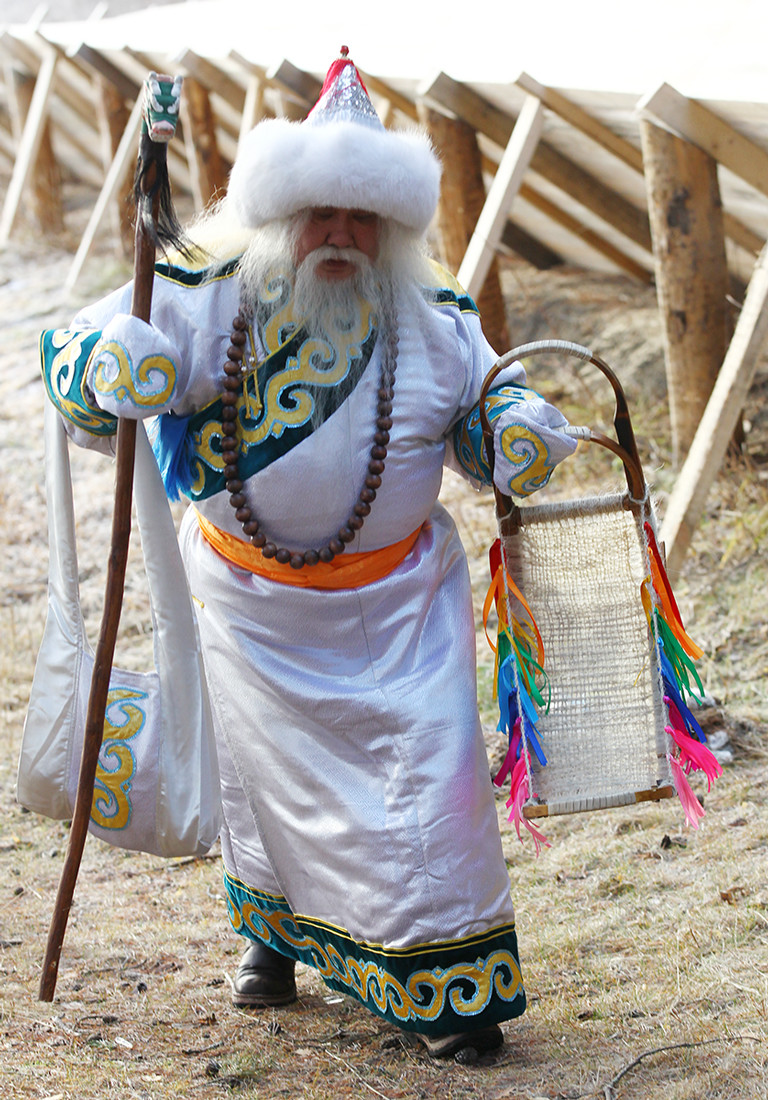
The Buddhist region of Buryatia reveres its “white elder.” He is believed to bring peace, longevity, and family prosperity.
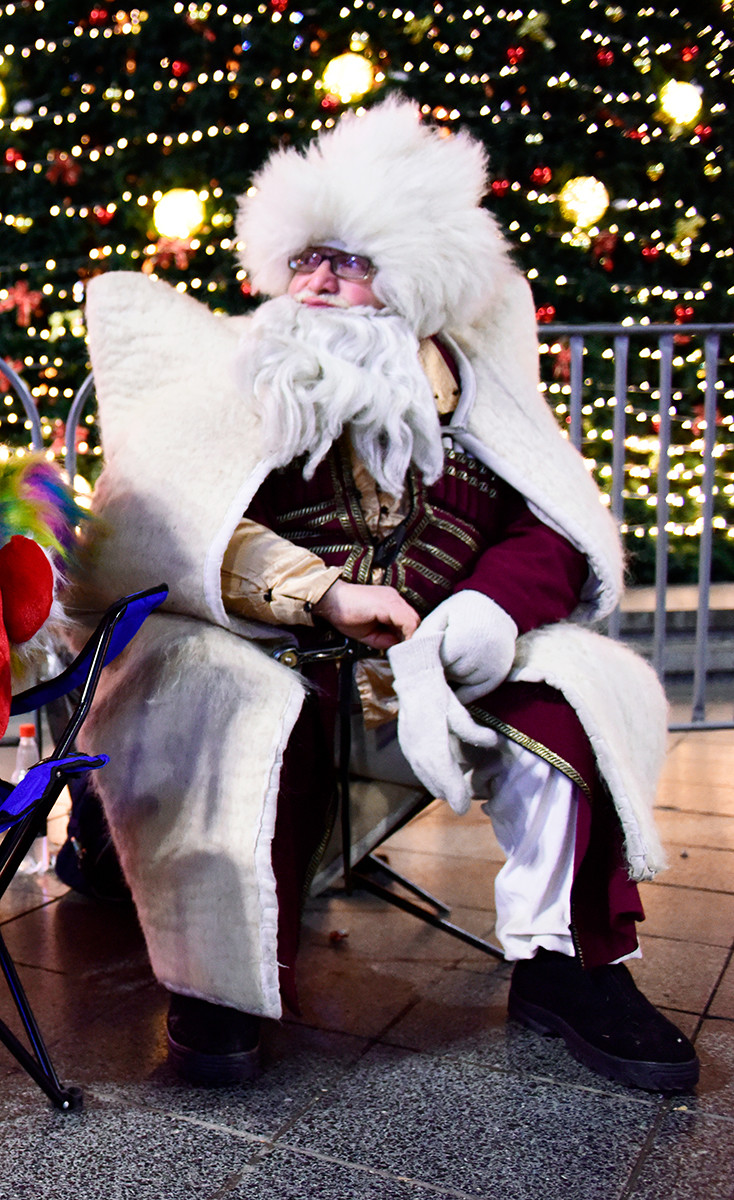
If using any of Russia Beyond's content, partly or in full, always provide an active hyperlink to the original material.
Subscribe
to our newsletter!
Get the week's best stories straight to your inbox